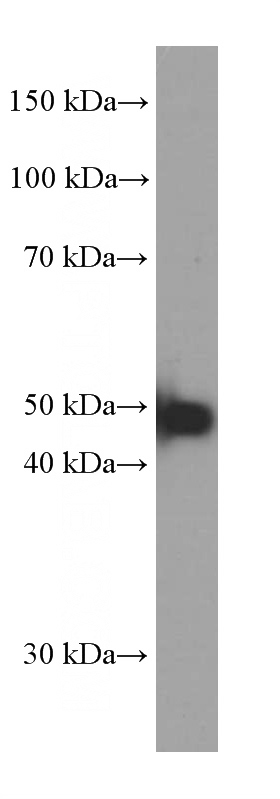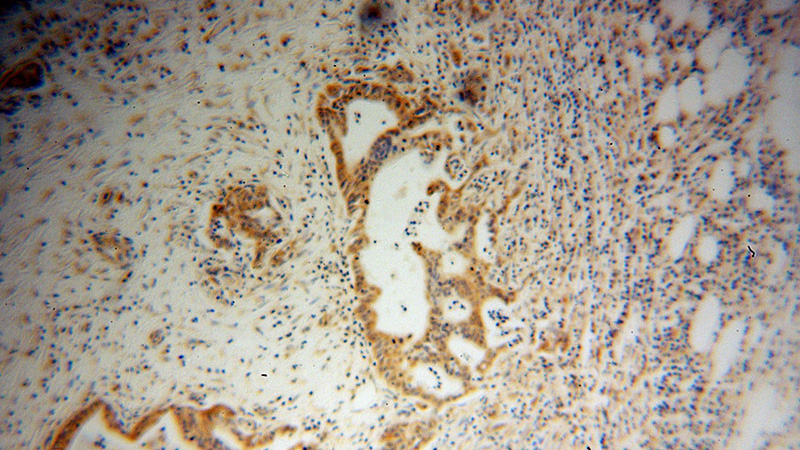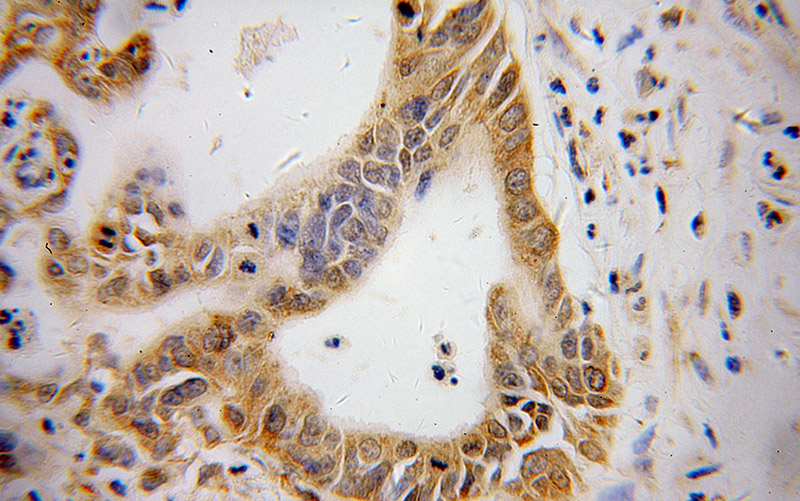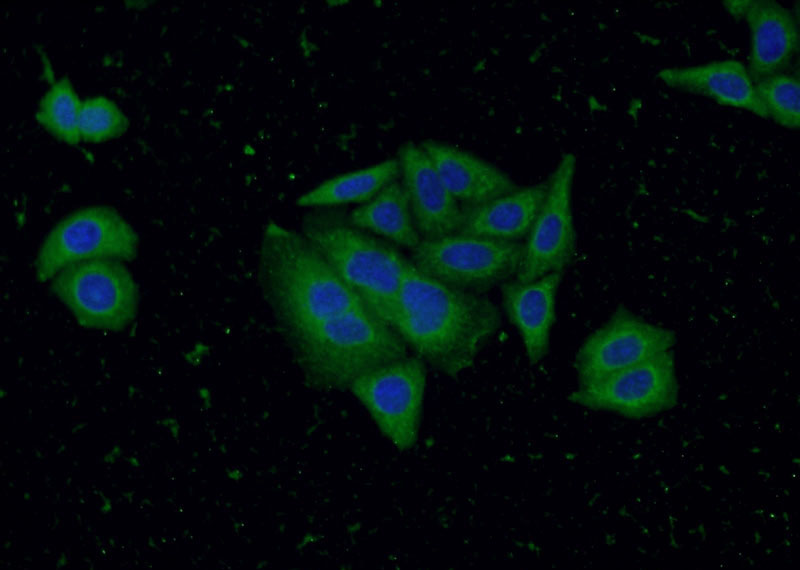-
Product Name
ATF4 antibody
- Documents
-
Description
ATF4 Mouse Monoclonal antibody. Positive IHC detected in human pancreas cancer tissue, human breast cancer tissue, human small intestine tissue. Positive IF detected in HepG2 cells. Positive WB detected in HepG2 cells, HEK-293 cells, human placenta tissue. Observed molecular weight by Western-blot: 45-50 kDa
-
Tested applications
ELISA, IHC, WB, IF
-
Species reactivity
Human, Mouse; other species not tested.
-
Alternative names
ATF4 antibody; CREB 2 antibody; CREB2 antibody; DNA binding protein TAXREB67 antibody; TAXREB67 antibody; TXREB antibody
- Immunogen
-
Isotype
Mouse IgG1
-
Preparation
This antibody was obtained by immunization of ATF4 recombinant protein (Accession Number: XM_017028807). Purification method: Caprylic acid/ammonium sulfate precipitation.
-
Clonality
Monoclonal
-
Formulation
PBS with 0.1% sodium azide and 50% glycerol pH 7.3.
-
Storage instructions
Store at -20℃. DO NOT ALIQUOT
-
Applications
Recommended Dilution:
WB: 1:1000-1:10000
IHC: 1:20-1:200
IF: 1:20-1:200
-
Validations

HepG2 cells were subjected to SDS PAGE followed by western blot with Catalog No:107069(ATF4 Antibody) at dilution of 1:2000

Immunohistochemical of paraffin-embedded human pancreas cancer using Catalog No:107069(ATF4 antibody) at dilution of 1:100 (under 10x lens)

Immunohistochemical of paraffin-embedded human pancreas cancer using Catalog No:107069(ATF4 antibody) at dilution of 1:100 (under 40x lens)

Immunofluorescent analysis of HepG2 cells using Catalog No:107069(ATF4 Antibody) at dilution of 1:50 and Alexa Fluor 488-congugated AffiniPure Goat Anti-Mouse IgG(H+L)
-
Background
ATF4 is a transcription factor, that accumulates predominantly in osteoblasts, where it regulates terminal osteoblast differentiation and bone formation. As a basic leucine-zipper (bZip) transcription factor, ATF4 can regulate amino acid metabolism, cellular redox state, and anti-stress responses. It also regulates age-related and diet-induced obesity and glucose homeostasis in mammals, and has conserved metabolic functions in flies. Due to its location at chromosome 22q13, a region linked to schizophrenia, ATF4 is considered as a positional candidate gene for schizophrenia. Otherwise, since ATF4 is induced by tumour microenvironmental factors, and regulates processes relevant to cancer progression, it might serve as a potential therapeutic target in cancer. This antibody is a mouse monoclonal antibody raised against full length human ATF4 antigen.
-
References
- Zhong W, Qin S, Zhu B. Oxysterol-binding protein-related protein 8 (ORP8) increases sensitivity of hepatocellular carcinoma cells to Fas-mediated apoptosis. The Journal of biological chemistry. 290(14):8876-87. 2015.
- Wu H, Wei L, Fan F. Integration of Hippo signalling and the unfolded protein response to restrain liver overgrowth and tumorigenesis. Nature communications. 6:6239. 2015.
- Dey S, Sayers CM, Verginadis II. ATF4-dependent induction of heme oxygenase 1 prevents anoikis and promotes metastasis. The Journal of clinical investigation. 125(7):2592-608. 2015.
Related Products / Services
Please note: All products are "FOR RESEARCH USE ONLY AND ARE NOT INTENDED FOR DIAGNOSTIC OR THERAPEUTIC USE"
